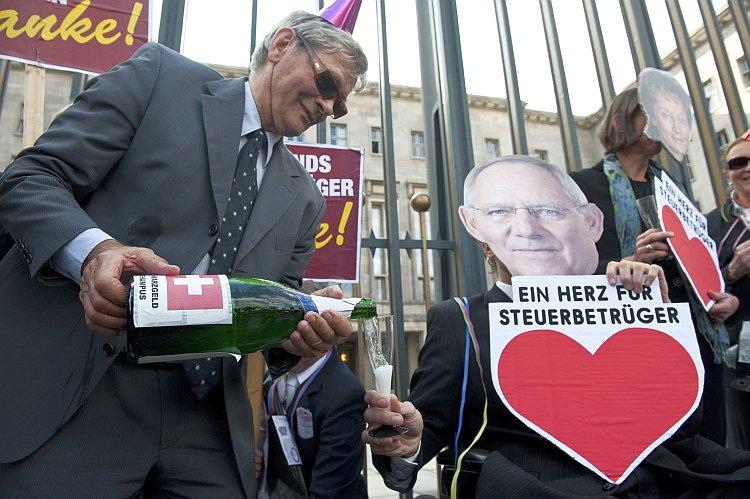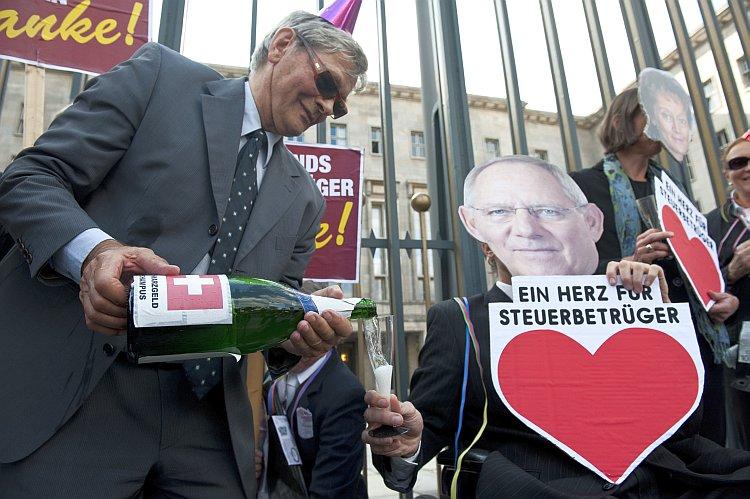A tax agreement between Germany and Switzerland aimed at tackling tax evasion remains controversial in Germany and might never take effect if the German opposition has its way.
Swiss banks are known worldwide to be a popular financial destination for those keen to avoid paying taxes in their home country.
It is estimated that more than 880 billion Swiss Francs (US$960 billion) of untaxed so-called dirty money from European citizens is locked up in Swiss banks accounts; funds from German tax evaders make up the biggest share with 220 billion Swiss Francs (US$240 billion), as reported by Swiss Television.
Germany signed a bilateral tax agreement with Switzerland last September to regulate taxes on assets held by German citizens in Swiss accounts; its details were revealed last week. Germany hopes to regain lost revenue through the move.
The deal grants an effective amnesty to tax evaders. After January 2013, German account holders in Switzerland who have untaxed assets will be required to make a partial payment on their back taxes, at a lower rate, and in exchange for not being subject to criminal persecution.
German Finance Minister Wolfgang Schäuble spoke highly of the agreement that came about after months of secret negotiations. In a statement, he called it a “balanced solution to the problem of German citizens investing capital in Switzerland but failing to comply … with their tax obligations.”
The Swiss Bankers Association appreciated the deal as well, and especially lauded the fact that their customers will be able to maintain their anonymity, since banking secrecy is a cherished—and for some an infamous—feature of Swiss banking.
However, the German opposition responded to the agreement with heavy criticism. Sigmar Gabriel, the chairman of the Social Democratic Party (SPD), called the plan a “slap in the face of honest citizens” and accused Schäuble of legalizing tax evasion.
Most holders of Swiss accounts would be taxed at a lower rate under this scheme. While officially, the applicable tax rates would range from 21 to 41 percent, in most cases the rate would be much lower than the highest tax bracket, according to expert calculations.
The deal’s cutoff date of Jan. 1, 2013, has also provoked criticism. It allows tax evaders time to move their money to another tax oasis, like a branch of a Swiss bank in Singapore, and avoid paying taxes altogether.
Consequently the opposition parties, led by the SPD, have threatened to block ratification of the agreement in the Bundesrat, the upper house, where they have a majority. That makes it unclear whether the deal will ever become law in its current form.
The agreement could face a judicial challenge as well. As news magazine Der Spiegel reported, the tax agreement might be considered unconstitutional since the German Federal Constitutional Court only allows amnesty for tax evaders willing to shed their anonymity.






